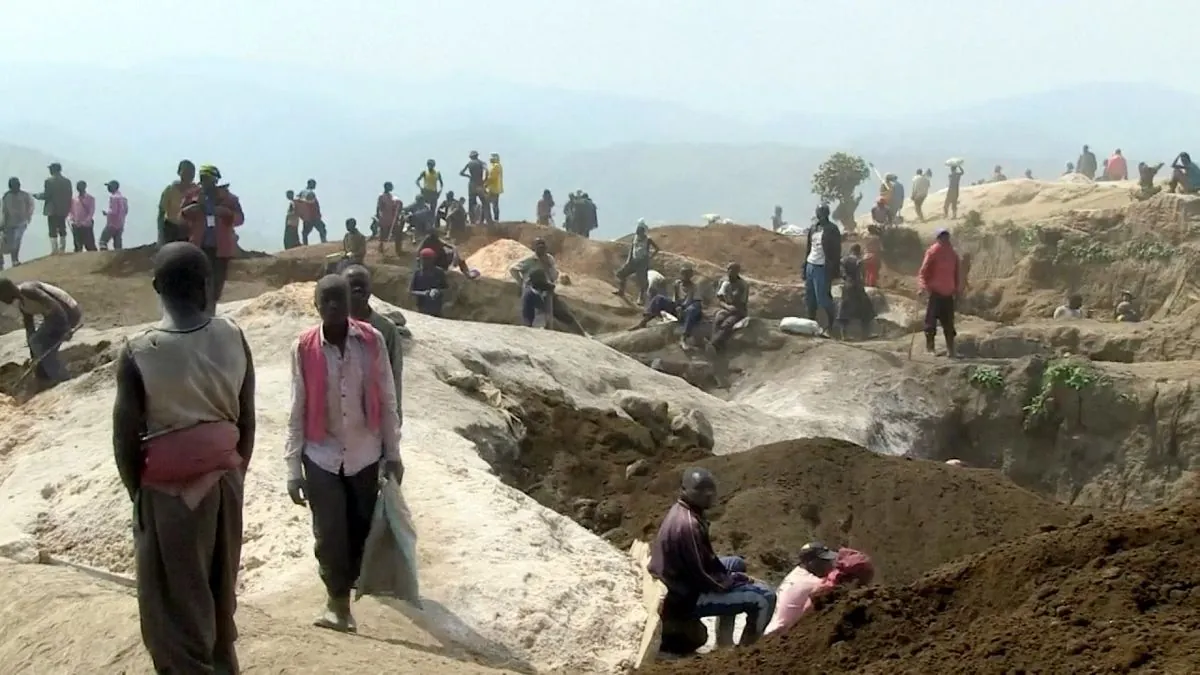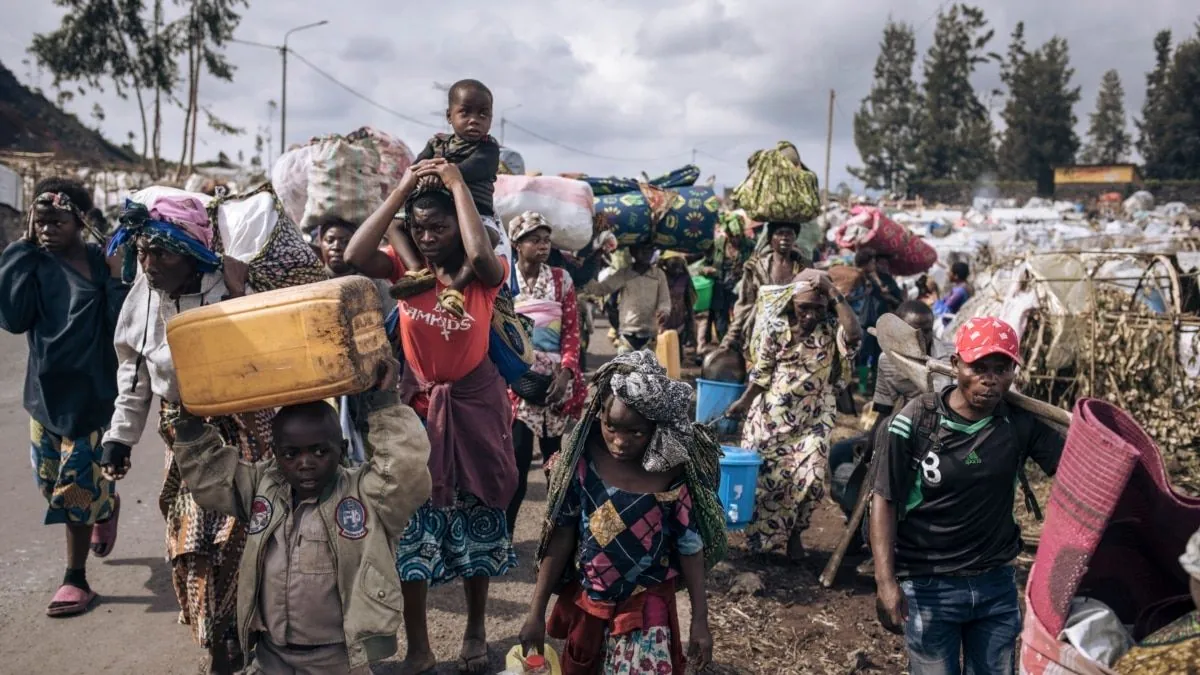M23 Rebels Profit $300,000 Monthly from Congo's Mineral-Rich Region
M23 rebels in Congo generate substantial revenue from controlling a key mining area. The UN calls for sanctions as the conflict in eastern Congo continues to displace millions and raise concerns over "blood minerals" in global supply chains.

In eastern Congo, the M23 rebel group has seized control of the Rubaya mining area, a region crucial for global tantalum production. This strategic move, occurring in April 2024, has enabled the group to generate approximately $300,000 monthly in revenue, according to recent reports to the U.N. Security Council.
Rubaya's significance lies in its contribution to over 15% of the world's tantalum supply, a rare metal extracted from coltan. Tantalum plays a vital role in the production of electronic components, particularly capacitors and high-power resistors used in smartphones and computers. The Democratic Republic of Congo (DRC) holds about 80% of the world's coltan reserves, underscoring the country's importance in the global technology supply chain.
Bintou Keita, head of the U.N. mission in Congo, emphasized the need for international sanctions against those profiting from this illicit trade. She stated, "Unless international sanctions are imposed on those benefiting from this criminal trade, peace will remain elusive and civilians will continue to suffer."
The conflict in eastern Congo has persisted for decades, resulting in one of the world's most severe humanitarian crises. Over 120 armed groups vie for power, land, and valuable mineral resources, while some claim to defend their communities. This ongoing violence has led to the displacement of approximately 6 million people in the country's eastern region, contributing to the largest internally displaced population in Africa.

The M23, or March 23 Movement, is primarily composed of ethnic Tutsis who separated from the Congolese army just over a decade ago. In 2012, they launched a significant offensive, capturing the provincial capital of Goma near the Rwandan border. Today, they once again pose a threat to this strategic city.
Congo has accused Rwanda of involvement in war crimes in the east, with U.S. and U.N. experts alleging that Rwanda provides military support to M23. While Rwanda denies these claims, it admitted in February 2024 to having troops and missile systems in eastern Congo, citing security concerns due to a buildup of Congolese forces near the border.
U.N. experts estimated in July 2024 that between 3,000 and 4,000 Rwandan government forces are deployed in eastern Congo alongside M23, which has been making substantial advances.
The conflict's impact extends beyond regional security, affecting global supply chains. Earlier this year, Congo's government questioned Apple about its knowledge of "blood minerals" being smuggled into its supply chain, highlighting the international dimensions of this complex issue.
"We must ensure that our natural resources do not fuel conflict and human rights abuses. Tech companies have a responsibility to thoroughly investigate their supply chains."
The DRC's vast mineral wealth, estimated at $24 trillion, includes not only coltan but also significant reserves of cobalt, essential for rechargeable batteries. This abundance of resources has been both a blessing and a curse for the country, fueling conflict while also presenting economic potential.
As the conflict persists, it continues to threaten the region's rich biodiversity. The DRC is home to the world's second-largest rainforest after the Amazon, with the Congo Basin containing about 70% of Africa's forest cover. Virunga National Park, Africa's oldest national park, is located in the conflict-affected eastern DRC, facing challenges from both armed groups and environmental degradation.
In late September 2024, a regional court in East Africa opened proceedings in a case filed by Congo against Rwanda, accusing it of violating Congo's sovereignty and territorial integrity. This legal action represents another front in the complex geopolitical landscape of the region.
The situation in eastern Congo remains a stark reminder of the intricate links between conflict, natural resources, and global consumer products. As the international community grapples with these issues, the people of eastern Congo continue to bear the brunt of a conflict that has spanned over four decades, reshaping the lives of millions and challenging the stability of Central Africa.


































